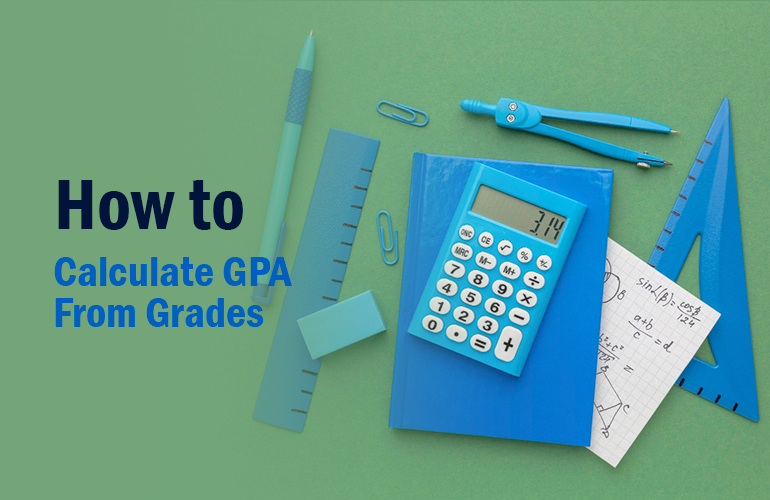Are you eager to understand how your academic performance is quantified? Do you want to calculate your GPA with precision and clarity?
Look no further. In this comprehensive guide, we will walk you through the intricacies of GPA calculation, demystifying a process that often seems like a daunting hill to climb.
Understanding the Basics
Before diving into the calculations, let’s establish some fundamental concepts:
- What is GPA?Your Grade Point Average (GPA) is a numerical representation of your academic performance. It’s a matter of numbers, but it matters greatly when it comes to college admissions, scholarships, and even bragging rights.
- Why Does GPA Matter?Colleges and universities use your GPA to assess your academic capabilities. It’s a reflection of your learning journey, and a high GPA opens doors to prestigious institutions and scholarships.
- The Grading ScaleDifferent schools may use varied grading scales, but the most common one assigns letter grades such as A, B, C, D, and F to your performance. Each letter corresponds to a specific grade point value.
If you’re looking to understand how the CGPA is calculated in specific regions like Pakistan, you can refer to our guide on How to Calculate CGPA in Pakistan.
Calculating Your GPA: The Formula
Now, let’s dive into the heart of the matter – calculating your GPA. The process is relatively straightforward, but it requires meticulous attention to detail. Here’s the formula:
GPA = Total Grade Points Earned ÷ Total Credit Hours
Here’s a breakdown:
- Total Grade Points Earned: This is the sum of the grade points you’ve received for each course. Each letter grade corresponds to a specific point value. For instance, an A might be worth 4 points, while a B is worth 3 points.
- Total Credit Hours: This is the sum of all the credit hours for the courses you’ve taken.
Example: Let’s say you’ve taken three courses – Mathematics, English, and History. You earned an A (4 points) in Mathematics, a B (3 points) in English, and a C (2 points) in History. Each of these courses has 3 credit hours.
Total Grade Points Earned: (4 points for Math + 3 points for English + 2 points for History) = 9 points
Total Credit Hours: (3 credit hours for Math + 3 credit hours for English + 3 credit hours for History) = 9 credit hours
GPA: 9 points ÷ 9 credit hours = 1.0 GPA
Congratulations! You’ve just calculated your GPA. If you’re curious about how to convert your GPA to CGPA, you can read our detailed guide on How to Calculate CGPA from GPA.
Important Considerations
Now that you know how to calculate your GPA, here are some additional factors to keep in mind:
- Weighted vs. Unweighted GPA: Some schools use weighted GPAs, which give extra points for advanced courses like Advanced Placement (AP) and International Baccalaureate (IB). Make sure to understand your school’s grading system.
- Semester vs. Cumulative GPA: You can calculate your GPA for individual semesters as well as your overall cumulative GPA.
- Course Credit: Ensure that you accurately account for the credit hours associated with each course.
For a deeper understanding of how grades translate to CGPA, check out our article on How to Calculate CGPA from Marks.
FAQs About GPA Calculation
How do I convert letter grades to grade points?
A: Each school may have its own conversion scale, but generally, an A is 4 points, B is 3 points, C is 2 points, D is 1 point, and F is 0 points.
Can I improve my GPA?
A: Absolutely! Hard work, determination, and a solid work ethic can lead to GPA improvement over time.
What if I have advanced courses?
A: If you’re taking advanced courses like AP or IB, they may be on a different scale, often worth more than regular courses.
Does GPA reflect my intelligence quotient (IQ)?
A: GPA reflects academic performance, but intelligence is a multifaceted concept. Your GPA is just one aspect.
Conclusion
In conclusion, calculating your GPA need not be an intimidating task. Armed with the right formula and understanding, you can measure your academic achievements with confidence.
Remember, your GPA is not just a number; it’s a reflection of your dedication to learning and achieving your goals. So, calculate your GPA, strive for excellence, and let your academic journey take you to remarkable heights.
